- Home
- Albert Camus
Resistance, Rebellion, and Death Page 11
Resistance, Rebellion, and Death Read online
Page 11
The Arabs can at least claim kinship, not in a nation,2 but in a sort of Moslem empire, either spiritual or temporal. Spiritually that empire exists, its adhesive force and doctrine being Islam. But there also exists a Christian empire, at least as important, which there is no question of bringing back as such into temporal history. For the moment, the Arab empire does not exist except in the writings of Colonel Nasser, and it could not come about without world-wide upheavals that would mean the Third World War in a short time. The claims for Algerian national independence must be seen in part as one of the manifestations of this new Arab imperialism in which Egypt, overestimating its strength, aims to take the lead and which, for the moment, Russia is using for its anti-Western strategy. The Russian strategy, which can be read on every map of the globe, consists in calling for the status quo in Europe (in other words, the recognition of its own colonial system) and in fomenting trouble in the Middle East and Africa to encircle Europe on the south. The happiness and freedom of the Arab populations are of little account in the whole affair. One has only to think of the slaughter of the Chechenzes or of the Tartars in the Crimea or of the destruction of the Arab culture in the once Moslem provinces of Daghestan. Russia merely takes advantage of such dreams of empire to serve her own designs. Those nationalistic or, in the strictest sense of the word, imperialistic claims must in any case be responsible for the unacceptable aspects of the Arab rebellion—chiefly, the systematic murder of French civilians and Arab civilians killed without discrimination and solely because they were French or friends of the French.
Consequently, we are faced with ambiguous demands, which we can approve as to their basic causes and as to some of their formulations, but which we can in no manner accept in certain of their developments. The mistake of the French government from the beginning was never to make any distinctions and consequently never to speak out clearly, and this justified every form of skepticism and retaliation on the part of the Arab masses. The result was to strengthen the extremist and nationalist factions on both sides.
The only chance of getting somewhere with the problem, today as yesterday, is therefore to speak clearly. If the elements of the problem are:
1) The amends that must be made to eight million Arabs who have lived until now under a particular form of oppression;
2) The right of 1,200,000 autochthonous French people to exist, and to exist in their native land without ever again being subjected to the discretion of fanatical military leaders;
3) The strategic interests that condition the freedom of the West:
then the French government must make it clearly known:
1) That it is ready to grant complete justice to the Arabs of Algeria and to liberate them from the colonial system;
2) That it will give up none of the rights of the Algerian French;
3) That it is unwilling for such justice to mean a prelude to a sort of historical death for the French nation, and for the West the risk of an encircling that would lead to the Kadarization of Europe and the isolation of America.
Hence it is possible to imagine a solemn declaration addressed exclusively to the Arabs and their representatives (it is worth noticing that since the beginning of hostilities no French chief of state or any governor has spoken directly to the Arab population) proclaiming:
1) That the era of colonialism is over, and that France (without blaming herself any more than other nations that grew up at the same time) admits her past and present mistakes and declares herself ready to make amends;
2) That she refuses, however, to yield to violence, especially the forms it assumes at present in Algeria; that she refuses, in particular, to serve the dream of the Arab empire at her own expense, at the expense of the European population of Algeria, and, finally, at the expense of the peace of the world;
3) That she therefore proposes a regime of free association in which every Arab, on the basis of the Lauriol plan,3 will truly find the privileges of a free citizen.
Of course, the difficulties begin here. But they may never be solved if this preliminary declaration is not solemnly made and directed (as I have said) toward the Arab population by every means of diffusion that a great nation possesses. That declaration would doubtless be heard by the Arab masses, who are today tired and disoriented, and, on the other hand, would reassure a large part of the Algerian French by keeping them from blindly opposing the structural reforms that are indispensable.
It remains to define the solution that might be suggested.
New Algeria
The only regime that, in the present state of affairs, would do justice to all parts of the population has long seemed to me to be a federation based on institutions similar to those of the Swiss confederation, which make it possible for different nationalities to live in peace. But I think that an even more original system must be devised. Switzerland is made up of different populations living in different territories. Its institutions aim simply to articulate the political life of its cantons. Algeria, on the other hand, offers the very rare example of different populations overlapping in the same territory. Hence it is essential to associate without fusing together (since federation is to begin with the union of differences), not different territories, but communities with different personalities. The solution proposed by M. Marc Lauriol, Professor of Law at Algiers (even without approving all his whereases) seems to me in this regard particularly adapted to Algerian realities and likely to satisfy the need for justice and freedom felt by all the communities.
In the main, his plan combines the advantages of integration and federalism. He proposes, on the one hand, to respect particularisms and, on the other, to associate the two populations in the administration of their common interest. For this purpose he suggests creating, in a first stage, two sections in the French Parliament, a metropolitan section and a Moslem section. The first would include those elected in metropolitan France and by the overseas French and the second would include the Moslems adhering to the Koran. The rule of proportionality would be strictly respected in the election. Thus it is probable that, in a Parliament made up of six hundred Deputies, there would be about fifteen Algerian French representatives and some hundred Moslems. The Moslem section would deliberate separately on all questions involving Moslems and on them alone. The Parliament in full session, including both French and Moslems, would have authority over everything concerning the two communities (for instance, taxation and the budget) or the two communities and metropolitan France (for instance, national defense). The other matters, insofar as they involved only metropolitan France (in civil law particularly) would fall under the exclusive authority of the metropolitan section. Hence laws involving only the Moslems would be the work of the Moslem Deputies alone; laws applying to all would be the work of all; and laws applying solely to the French would be the work of the French Deputies alone. Still in that initial stage, in other words, the government would be responsible to each section or to the two together according to the nature of the questions raised.
During a second stage, after the trial period necessary to a general reconciliation, it would be essential to draw conclusions from such an innovation. In fact, contrary to all our practices, contrary above all to the deep-rooted prejudices inherited from the French Revolution, we should thus have sanctioned within the republic two equal but distinct categories of citizens. From one point of view, this would mark a sort of revolution against the regime of centralization and abstract individualism resulting from 1789, which, in so many ways, now deserves to be called “Ancien Régime.” M. Lauriol is right, in any case, to declare that this is nothing less than the birth of a French federal structure that will create a true French Commonwealth.4 Such institutions must by nature fit into a system that could include the countries of the Magrab and those of black Africa. An Algerian regional Assembly would then express whatever was peculiar to Algeria, while a federal Senate, in which Algeria would be represented, would hold legislative power for everything (army and foreign af
fairs, for example) involving the whole federation and would elect a responsible federal government. It is essential to see that this system will not be incompatible with the European institutions that may come into being in the future.
This, in any case, should be the French proposal, which would then be maintained permanently until a cease-fire is achieved. That cease-fire is at present made more difficult by the uncompromising attitude of the F.L.N. Their uncompromising attitude is in part spontaneous and unrealistic and in part inspired and cynical. Insofar as it is spontaneous, it can be understood and an attempt can be made to neutralize it by a really constructive proposal. Insofar as it is inspired from the outside, it is unacceptable. Under foreign prompting, independence can be achieved only by a refusal of any kind of negotiation and a challenge to the worst kind of warfare. France has no alternative, in this case, but to continue maintaining the proposal of which I have spoken, to get it approved by international opinion and by ever larger segments of Arab opinion, and to try to get it gradually accepted.
It is possible to imagine something like this for the immediate future. This solution is not utopian as far as Algerian realities are concerned. It is made uncertain only by the state of French political society. It presupposes in fact:
1) A collective will in metropolitan France, and particularly acceptance of a policy of austerity that would have to be borne by the rich (the wage-earners already bear all the brunt of a scandalously unjust system of taxation);
2) A government that will reform the Constitution (which, by the way, has been approved by only a minority of the French) and that is willing or able to inaugurate the long, ambitious, and tenacious policy leading to a French federation.
These two conditions may make an objective observer skeptical. Yet the appearance in France and Algeria of new and considerable forces, in men and material resources, justifies hope of a rebirth. As a result, such a solution as the one just outlined has a chance of winning out. If not, Algeria will be lost and the consequences will be dreadful for the Arabs and for the French. This is the last warning that a writer who for twenty years has been devoted to the service of Algeria feels he can voice before resuming his silence.
1 Algeria: The Realities (New York: Alfred A. Knopf; 1958).
2 The Syrian “nation,” the moment it got out from under the French protectorate, melted away, like sugar in water, in Nasser’s Arab Republic.
3 See p. 149.
4 Le Fédéralisme et l’Algérie (La Fédération, 9, rue Auber, Paris).
Hungary
KADAR HAD HIS DAY OF FEAR
The Hungarian Minister of State Marosan, whose name sounds like a program, declared a few days ago that there would be no further counter-revolution in Hungary. For once, one of Kadar’s Ministers has told the truth. How could there be a counter-revolution since it has already seized power? There can be no other revolution in Hungary.
I AM not one of those who long for the Hungarian people to take up arms again in an uprising doomed to be crushed under the eyes of an international society that will spare neither applause nor virtuous tears before returning to their slippers like football enthusiasts on Saturday evening after a big game. There are already too many dead in the stadium, and we can be generous only with our own blood. Hungarian blood has proved to be so valuable to Europe and to freedom that we must try to spare every drop of it.
But I am not one to think there can be even a resigned or provisional compromise with a reign of terror that has as much right to be called socialist as the executioners of the Inquisition had to be called Christians. And, on this anniversary of liberty, I hope with all my strength that the mute resistance of the Hungarian people will continue, grow stronger, and, echoed by all the voices we can give it, get unanimous international opinion to boycott its oppressors. And if that opinion is too flabby or selfish to do justice to a martyred people, if our voices also are too weak, I hope that the Hungarian resistance will continue until the counter-revolutionary state collapses everywhere in the East under the weight of its lies and its contradictions.
The Bloody and Monotonous Rites
For it is indeed a counter-revolutionary state. What else can we call a regime that forces the father to inform on his son, the son to demand the supreme punishment for his father, the wife to bear witness against her husband—that has raised denunciation to the level of a virtue? Foreign tanks, police, twenty-year-old girls hanged, committees of workers decapitated and gagged, scaffolds, writers deported and imprisoned, the lying press, camps, censorship, judges arrested, criminals legislating, and the scaffold again—is this socialism, the great celebration of liberty and justice?
No, we have known, we still know this kind of thing; these are the bloody and monotonous rites of the totalitarian religion! Hungarian socialism is in prison or in exile today. In the palaces of the State, armed to the teeth, slink the petty tyrants of absolutism, terrified by the very word “liberty,” maddened by the word “truth”! The proof is that today, the 15th of March, a day of invincible truth and liberty for all Hungarians, was for Kadar simply a long day of fear.
For many years, however, those tyrants, aided in the West by accomplices who were not obliged by anything or anyone to show such zeal, cloaked their true actions in a heavy smoke screen. When something could be seen through the screen, they or their Western interpreters explained to us that everything would be all right in ten generations or so, that meanwhile everyone was joyfully heading toward the future, that the deported had made the mistake of getting in the way of traffic on the magnificent road of progress, that the executed agreed completely as to their own suppression, that the intellectuals declared themselves delighted with their pretty gag because it was dialectical, and that the proletariat were charmed with their own work because, if they worked overtime for wretched wages, this was in the proper direction of history.
Alas, the people themselves spoke up! They began to talk in Berlin, in Czechoslovakia, in Poznan, and eventually in Budapest. All at once, everywhere, intellectuals tore off their gags. And together, with a single voice, they said that instead of progress there was regression, that the killings had been useless, the deportations useless, the enslavements useless, and that henceforth, to be sure of making real progress, truth and liberty had to be granted to all.
Thus, with the first shout of insurrection in free Budapest, learned and shortsighted philosophies, miles of false reasonings and deceptively beautiful doctrines were scattered like dust. And the truth, the naked truth, so long outraged, burst upon the eyes of the world.
Contemptuous teachers, unaware that they were thereby insulting the working classes, had assured us that the masses could readily get along without liberty if only they were given bread. And the masses themselves suddenly replied that they didn’t have bread but that, even if they did, they would still like something else. For it was not a learned professor but a Budapest blacksmith who wrote: “I want to be considered an adult eager to think and capable of thought. I want to be able to express my thoughts without having anything to fear and I want, also, to be listened to.”
As for the intellectuals who had been told and shouted at that there was no truth other than the one that served the cause, this is the oath they took at the grave of their comrades assassinated by that cause: “Never again, not even under threat and torture, nor under a misunderstood love of the cause, will anything but the truth issue from our mouths.” (Tibor Meray at the grave of Rajk.)
The Scaffold Does Not Become Any More Liberal
After that, the case is closed. The slaughtered people are our people. What Spain was for us twenty years ago Hungary will be today. The subtle distinctions, the verbal tricks, and the clever considerations with which people still try to cloak the truth do not interest us. The competition we are told about between Rakosi and Kadar is unimportant. The two are of the same stamp. They differ only by the number of heads to their credit, and if Rakosi’s total is more impressive, this will not be so for lo
ng.
In any event, whether the bald killer or the persecuted persecutor rules over Hungary makes no difference as to the freedom of that country. I regret having to play the role of Cassandra once more and having to disappoint the fresh hopes of certain ever hopeful colleagues, but there is no possible evolution in a totalitarian society. Terror does not evolve except toward a worse terror, the scaffold does not become any more liberal, the gallows are not tolerant. Nowhere in the world has there been a party or a man with absolute power who did not use it absolutely.
The first thing to define totalitarian society, whether of the Right or of the Left, is the single party, and the single party has no reason to destroy itself. This is why the only society capable of evolution and liberalization, the only one that deserves both our critical and our active support is the society that involves a plurality of parties as a part of its structure. It alone allows one to denounce, hence to correct, injustice and crime. It alone today allows one to denounce torture, disgraceful torture, as contemptible in Algiers as in Budapest.
What Budapest was Defending
The idea, still voiced among us, that a party, because it calls itself proletarian, can enjoy special privileges in regard to history is an idea of intellectuals tired of their advantages and of their freedom. History does not confer privileges: it lets them be snatched away.

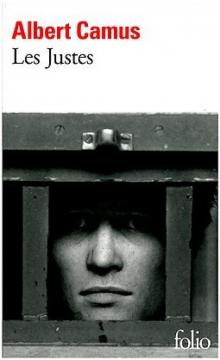 Les Justes
Les Justes The Sea Close By
The Sea Close By The Stranger
The Stranger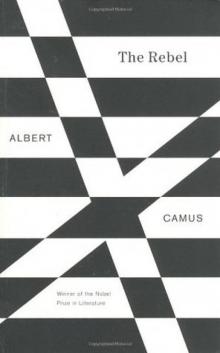 The Rebel: An Essay on Man in Revolt
The Rebel: An Essay on Man in Revolt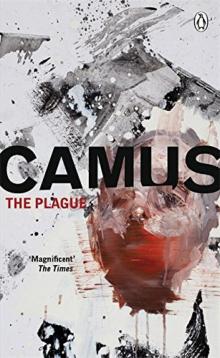 The plague
The plague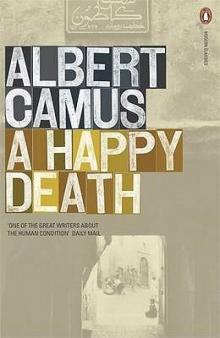 A Happy Death
A Happy Death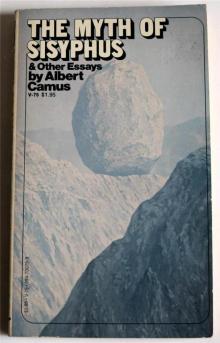 The Myth of Sisyphus and Other Essays
The Myth of Sisyphus and Other Essays The Fall
The Fall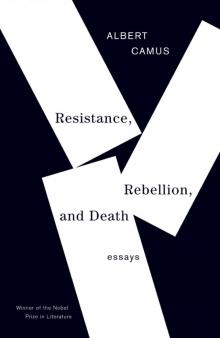 Resistance, Rebellion, and Death
Resistance, Rebellion, and Death The First Man
The First Man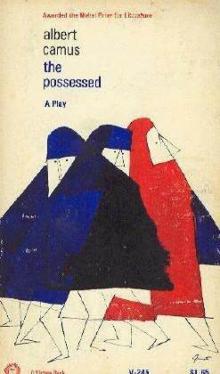 The Possessed
The Possessed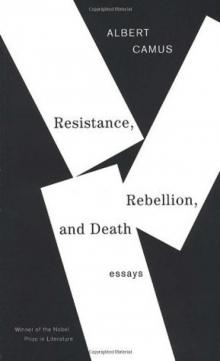 Resistance, Rebellion and Death: Essays
Resistance, Rebellion and Death: Essays